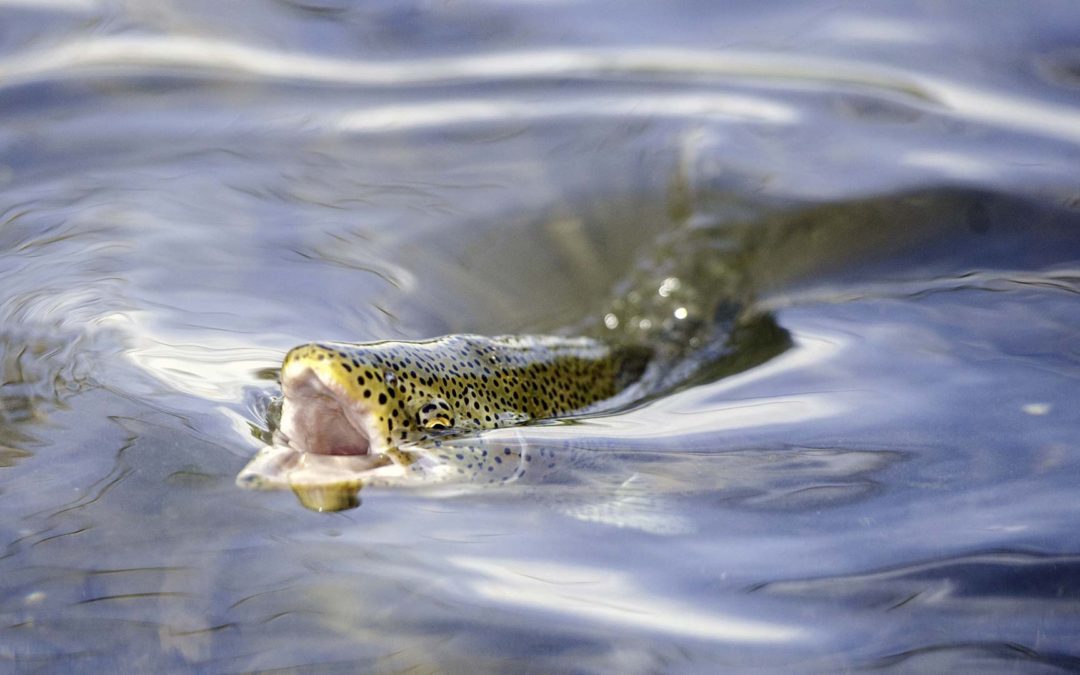I threw fly after fly to the feeding trout and it didn’t even look at any one of the multitude of options presented to it. And I wondered, might today be the day that I don’t even catch one fish?
I’ve been fly fishing for more than 25 years and the act of catching fish has become less interesting than having a deep understanding of how to catch fish in Western rivers on almost any given day. The knowledge I’d acquired didn’t quite put me in guide territory but in the very dangerous—to trout—recreationalist.
And still, just because I knew some stuff and had success in the past, that trout didn’t budge. The buffet of offerings didn’t even entice the slightest glance.
“I suck.” That was the phrase that popped into my head accompanied by feelings of worthlessness.
So there I was, wet and cool on a sweltering 90 degree evening, standing in one of the most strikingly beautiful freestone rivers in the West, 15 minutes from my house, sight fishing to a feeding trout, with a friend just up the pool. Yet, I was having a no good, very bad day with the thoughts and stories in my head. I gave up and got out of the river.
On a call with a CEO this morning, I was reminded about how enticing our smorgasbord of stories can be and how easy it is to get hooked on our thinking. Even for super talented people with boatloads of experience and wisdom.
And, she was very much in a twist as she shared her story about how her personal worth and value in the world really were tied to the results and outcomes she and her team created.
I let her take all the time she needed to thoroughly explain it to me.
Then, after she was done, she paused for a minute…and she started laughing. She saw right through her story because in explaining and defending it, she had gained a new clarity; one that decoupled her self-worth from unpredictable outcomes. Grounded, clear and centered—she was back in the game.
Later that evening in the river, with each cast, I had a trout on the line. I didn’t take credit or tell myself yet another story. I knew that the outcome changed because the nature of the environment changed, because that’s what dynamic and complex systems do—in rivers, in business and in life.
Sometimes, when we have plenty of experience and success is not in our control, our job isn’t about trying harder or being better, our job is to step back and gain clarity so we don’t get hooked on a line of thinking that lands us, or our teams, out of the game.
